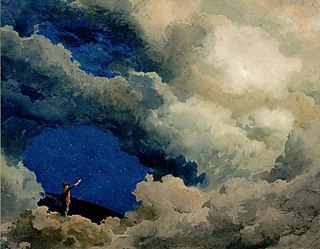
Mefistofele is an opera in a prologue and five acts, later reduced to four acts and an epilogue, the only completed opera with music by the Italian composer-librettist Arrigo Boito. The opera was given its premiere on 5 March 1868 at La Scala, Milan, under the baton of the composer, despite his lack of experience and skill as a conductor.
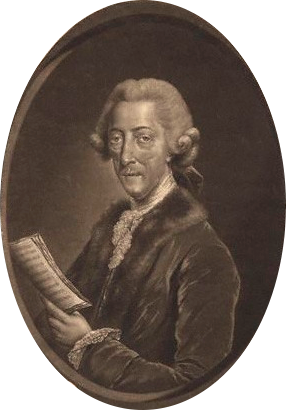
Thomas Augustine Arne was an English composer. He is best known for his patriotic song "Rule, Britannia!" and the song "A-Hunting We Will Go", the latter composed for a 1777 production of The Beggar's Opera, which has since become popular as a folk song and a nursery rhyme. Arne was a leading British theatre composer of the 18th century, working at the West End's Drury Lane and Covent Garden. He wrote many operatic entertainments for the London theatres and pleasure gardens, as well as concertos, sinfonias, and sonatas.

Alcina is a 1735 opera seria by George Frideric Handel. Handel used the libretto of L'isola di Alcina, an opera that was set in 1728 in Rome by Riccardo Broschi, which he acquired the year after during his travels in Italy. Partly altered for better conformity, the story was originally taken from Ludovico Ariosto's Orlando furioso, an epic poem. The opera contains several musical sequences with opportunity for dance: these were composed for dancer Marie Sallé.

Der Bettelstudent is an operetta in three acts by Carl Millöcker with a German libretto by Camillo Walzel and Richard Genée, based on Les noces de Fernande by Victorien Sardou and The Lady of Lyons by Edward Bulwer-Lytton. However, the librettists added the element of combining love and politics to the French comedy plots. It premiered in Vienna in 1882.

Ein Walzertraum is an operetta by Oscar Straus with a German libretto by Leopold Jacobson and Felix Dörmann, based on the novella Nux, der Prinzgemahl by Hans Müller-Einigen from his 1905 book Buch der Abenteuer.

Oberon, or The Elf-King's Oath is a 3-act romantic opera with spoken dialogue composed in 1825–26 by Carl Maria von Weber. The only English opera ever set by Weber, the libretto by James Robinson Planché was based on the German poem Oberon by Christoph Martin Wieland, which itself was based on the epic romance Huon de Bordeaux, a French medieval tale. It was premiered in London on 12 April 1826.
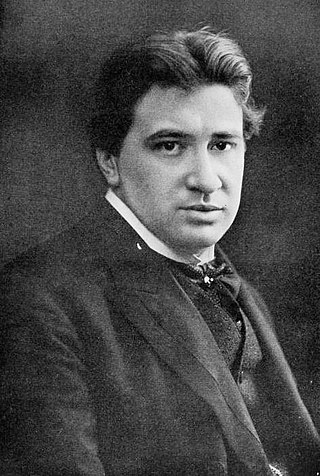
Il segreto di Susanna is an intermezzo in one act by Ermanno Wolf-Ferrari to an Italian libretto by Enrico Golisciani. The opera premiered in 1909 and is the most frequently performed of all of Wolf-Ferrari's works. The overture of the work has become a well known concert piece.The opera tells the story of a husband who suspects his wife is having an affair after discovering she smells like cigarettes; only later to discover that her secret is that she is a smoker. Musicologist John C.G. Waterhouse, wrote the following: "Il segreto di Susanna owes its success partly to its disarming simplicity. Lasting barely 45 minutes, with only two singing characters, it is conveniently cheap to produce; and the slender but distinctive idea of the libretto, combined with the elegant if rather miscellaneous charm of the music, has an obvious appeal which even subsequent cancer research has not seriously undermined."

Madame Pompadour is an operetta in three acts, composed by Leo Fall with a libretto by Rudolph Schanzer and Ernst Welisch. Conducted by the composer, it opened at the Berliner Theater in Berlin on 9 September 1922 and then at the Theater an der Wien in Vienna on 2 March 1923.

La buona figliuola, or La Cecchina, is an opera buffa in three acts by Niccolò Piccinni. The libretto, by Carlo Goldoni, is based on Samuel Richardson's novel Pamela; or, Virtue Rewarded. This was Piccinni's most successful Italian opera. There was a sequel entitled La buona figliuola maritata (1761) by the same composer and librettist. La buona figliuola supposta vedova by Gaetano Latilla followed in 1766.

Le Cheval de bronze is an opéra comique by the French composer Daniel Auber, first performed on 23 March 1835 by the Opéra-Comique at the Salle de la Bourse in Paris. The libretto is by Auber's regular collaborator, Eugène Scribe and the piece was a great success in its day. In 1857, it was transformed into an opera-ballet, but this did not hold the stage. The overture is one of Auber's most popular. The first-act finale expands on the final phrases from the first-act finale of Mozart's Così fan tutte. The composer tried to reflect the Chinese setting of the story in the music.

Le droit d'aînesse is an opéra bouffe, a form of operetta, in three acts by Francis Chassaigne with a French libretto by Eugène Leterrier and Albert Vanloo. It premiered in Paris in 1883. An English-language version titled Falka, with a libretto translated and adapted by Henry Brougham Farnie, was successfully premiered in London later that year followed by productions throughout the English-speaking world.

Alfred is a sung stage work about Alfred the Great with music by Thomas Arne and libretto by David Mallet and James Thomson. The work was initially devised as a masque in 1740 and was first performed at Cliveden, country home of Frederick, Prince of Wales, on 1 August 1740 to commemorate the accession of his grandfather George I and the birthday of the Princess Augusta. Arne later revised the work turning it into an all-sung oratorio in 1745 and then an opera in 1753. It is best known for its finale "Rule, Britannia!".
L'attaque du moulin is a drame lyrique (opera) in four acts by the French composer Alfred Bruneau. The libretto, by Louis Gallet with the collaboration of Émile Zola, is based on a short story by Zola. Zola's story is about the Franco-Prussian War, but the setting of the opera was changed to the period of the French Revolution.
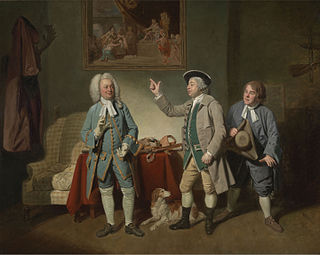
Love in a Village is a ballad opera in three acts that was composed and arranged by Thomas Arne. A pastiche, the work contains 42 musical numbers of which only five were newly composed works by Arne. The other music is made up of 13 pieces borrowed from Arne's earlier stage works, a new overture was by C. F. Abel, and 23 songs by other composers, including Bishop, Boyce, Geminiani, Giordani, and Galuppi, albeit with new texts. The English libretto, by Isaac Bickerstaffe, is based on Charles Johnson’s 1729 play The Village Opera. The opera premiered at the Royal Opera, Covent Garden in London on 8 December 1762. One of its best known songs is the Miller of Dee.

The Fairy Prince is a masque in three acts by composer Thomas Arne. The English libretto, by George Colman the Elder, is based on Ben Jonson’s Oberon, the Faery Prince (1611). The work premiered at the Covent Garden Theatre, London, on 12 November 1771.

Lurline is a grand romantic opera in three acts composed by William Vincent Wallace to an English libretto by Edward Fitzball. It was first performed on 23 February 1860 at the Theatre Royal, Covent Garden by the Pyne and Harrison English Opera Company with Louisa Pyne in the title role. The libretto is based on the legend of the Lorelei.
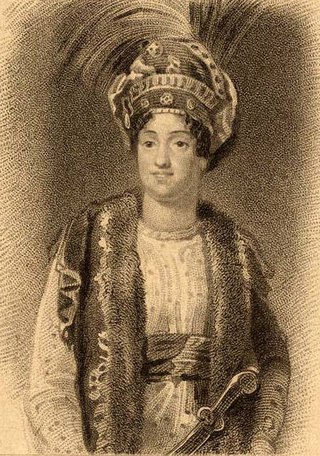
Artaxerxes is an opera in three acts composed by Thomas Arne set to an English adaptation of Metastasio's 1729 libretto Artaserse. The first English opera seria, Artaxerxes premiered on 2 February 1762 at the Theatre Royal, Covent Garden, and continued to be regularly performed until the late 1830s. Its plot is loosely based on the historical figure, Artaxerxes I who succeeded his father Xerxes I after his assassination by Artabanus.
Caterina Galli was an Italian operatic mezzo-soprano. She first rose to fame in England in the 1740s and early 1750s where she was particularly admired for her performances in the works of George Frideric Handel. She then enjoyed success in her native country in the 1750s and 1760s, before returning to England, where she remained active as a performer up through 1797.

Esmeralda is an opera in four acts composed by Arthur Goring Thomas to an English-language libretto by Theo Marzials and Alberto Randegger based on Victor Hugo's 1831 novel The Hunchback of Notre-Dame. It premiered in London on 26 March 1883 at the Theatre Royal, Drury Lane with Georgina Burns in the title role and Barton McGuckin as her lover, Phoebus.














